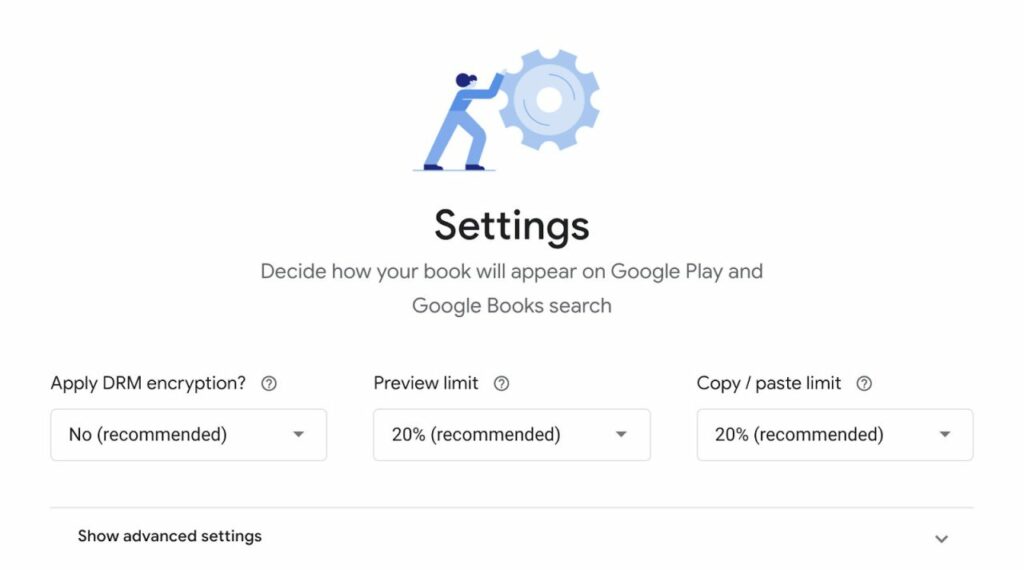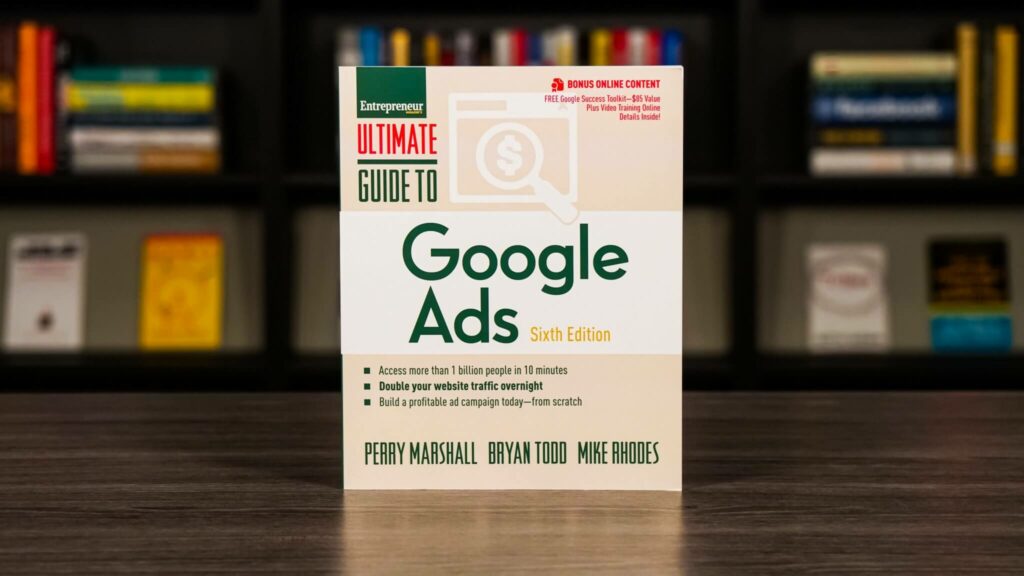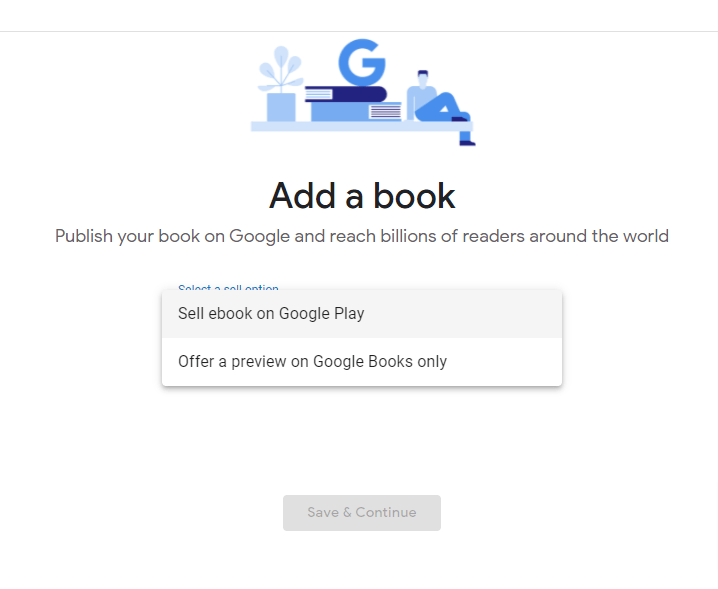How to advertise my book on Google

If you want to sell and reach more readers for your book, Google is one of the most powerful advertising platforms to help you do that. With the ability to reach millions of users every day, book advertising on Google helps increase visibility, attract potential readers, and effectively boost book sales. In this article, RentAds will explore how to advertise my book on google.
Benefits of advertising books on Google

Advertising books on Google can bring you the following benefits:
Reach the right target readers
Google Ads enables you to precisely target individuals searching for books or interested in the genre you are promoting. Thanks to powerful user data analysis tools, you can define your target audience based on age, gender, location, search behavior, and even specific interests. This helps your ad campaign stay focused and reach those who are truly likely to buy and read your book.
Increase visibility for personal brand and books
Appearing on platforms like Google Search, YouTube, or websites within the Google Display Network helps you build a professional author image and bring your book closer to readers. Whether you are a new or established author, maintaining a consistent presence on Google platforms helps enhance personal brand awareness and strengthen reader trust.
Increase book sales effectively
When users see book ads with direct purchase links or are redirected to platforms like Google Play Books, Amazon, or your website, the conversion rate from viewers to buyers tends to be higher. This becomes especially effective when ads are combined with promotions such as discounts, limited-time offers, or short-term free book giveaways.
Accurate campaign performance tracking
One of the biggest advantages of Google Ads is the ability to measure campaign performance in detail. You can easily track the number of clicks, conversion rates, cost per visit, or purchase, and adjust the campaign to optimize your budget. This helps you identify which campaign works best, allowing you to make smarter marketing decisions and save on advertising costs.
Flexible budget and campaign scalability
Running book ads on Google suits all budget sizes. Whether you’re a self-publishing author with a small budget or a professional publisher with a structured marketing plan, you can still launch a suitable campaign. You have full control over daily spending and can adjust or pause the campaign at any time.
How to advertise my book on Google

To advertise books on Google, you can refer to the steps below:
Step 1: Create a Google Ads Account
The first step in advertising books on Google is to create a Google Ads account. You need to use an active Gmail address to register at ads.google.com. After completing the basic information, you can access the campaign management interface. Setting up the account properly helps you control the budget easily, choose the payment method, and set up ad performance tracking.
Step 2: Clearly define your advertising goals
Before launching an ad campaign, you need to define specific goals for your campaign. Do you want to increase website traffic for book introductions? Boost online book sales? Or simply raise personal brand awareness as an author? Clearly defining your goals will help you choose the right type of ad campaign (search, display, YouTube, or Google Shopping) and optimize cost-effectiveness.
Step 3: Optimize the book landing page
The landing page is where users are directed after clicking on the ad. It can be a book sales page on your website, a store on Tiki, Shopee, or Amazon, or even your page. Make sure the landing page includes detailed information about the book’s content, reader reviews, an eye-catching cover image, an introduction video (if available), and clear call-to-action buttons such as “buy now,” “learn more,” or “read a sample.” The more professional your landing page is, the higher the conversion rate from viewers to buyers.
Step 4: Set up a suitable Google advertising campaign
Once you have a Google Ads account and a high-quality landing page, you can start setting up your ad campaign. There are several types of ads suitable for books, including:
- Search ads: When users search for keywords like “self-help books,” your ad will appear at the top of the search results.
- Display ads: Your book banner will appear on relevant websites, blogs, or apps.
- Video ads (YouTube ads): If you have a book introduction video, you can run ads on YouTube to reach potential readers.
- Google Shopping ads (if selling through e-commerce platforms): The book will appear as a product with price, image, and title.
You should choose the format that fits your budget and target audience.
Step 5: Research and choose effective keywords
Keywords are the key factor that determines whether your ads appear to the right audience. Use tools like Google Keyword Planner to find keywords related to your book content and users’ search behavior. For example: “life skills books,” “parenting books,” “Vietnamese literature books,” etc. Group keywords by specific topics and create separate ad groups for each to make it easier to track and optimize performance.
Step 6: Create Compelling Ad Content
An effective Google ad should have an engaging headline, concise content, and a clear call to action. For example, the headline should highlight the book’s key value: “Discover success secrets in the bestselling book of 2025!”, while the description can summarize the book or emphasize an offer like “Get 20% off for 3 days only – order now!”. In addition, using ad extensions such as additional links, phone numbers, or user reviews will increase trust and click-through rates.
Step 7: Monitor and optimize advertising performance
After running your ad, you need to track its performance via the Google Ads dashboard. Metrics such as click-through rate (CTR), conversion rate, cost per click (CPC), and total revenue will help you evaluate the effectiveness of the campaign. Based on that data, you can:
- Adjust keyword bids.
- Remove ineffective keywords.
- A/B test ad headlines and content.
- Optimize the landing page if the conversion rate is low.
Regular monitoring helps you save costs and improve advertising performance.
Tips to optimize and measure the effectiveness of book advertising on Google
To optimize the effectiveness of book advertising on Google, you can apply the following tips:
Optimize the book ad content
Ad content is a key factor that determines how attractive it is to readers. Start by writing a compelling headline that sparks curiosity and accurately reflects the book’s topic. The headline should be short, include keywords related to the book’s genre, and evoke emotions. The ad description should also be carefully crafted. Don’t just describe the book in a dry way; briefly highlight the value that readers will gain from reading it. Include a clear call-to-action such as “Read now,” “Discover the most popular book,” or “Download for free for a limited time.” In addition, using a high-quality, professionally designed book cover image will help your ad stand out. If possible, invest in a short video introduction or a review from a celebrity or expert to build trust.
Target the right audience
Google Ads provides many tools to help you identify and reach the right audience. For books, understanding the profile of your potential readers is crucial. Identify the age, gender, interests, geographic location, and search behavior of your target audience. For example, if you are advertising a self-development book, target people interested in soft skills, career success, or entrepreneurship. Additionally, use search keywords directly related to the book’s topic. This not only ensures your ad reaches the right audience but also reduces advertising costs by avoiding ineffective clicks.
Monitor and measure campaign performance
An effective advertising campaign cannot lack the step of monitoring and measuring. Google Ads provides tools such as Google Analytics and Conversion Tracking to help you analyze detailed metrics: click-through rate (CTR), conversion rate, cost per acquisition (CPA), time on site, and many other indicators. Based on this data, you can evaluate which ad copy performs well, which keywords bring in customers, and which areas have high conversion rates. This helps you adjust the content, budget, and targeting in real-time to optimize the campaign.
A/B testing to optimize performance
A/B testing is a smart advertising optimization strategy. You can create multiple versions of an ad with different headlines, descriptions, images, or calls to action to compare performance. After running the test for a short period, keep the version with the highest conversion rate. This testing process not only helps you understand what resonates best with the audience but also gradually improves the campaign’s quality throughout each book release phase or across different target groups.
Combining Google Ads with a content marketing strategy
In addition to using paid advertising, combine Google Ads with a content marketing strategy. Creating blog posts and articles about the book-writing process, the message in the book, or attractive excerpts can help attract organic traffic and increase advertising effectiveness. Moreover, when users see that the ad content aligns with what they have previously read or are interested in, the likelihood of clicking the ad and purchasing the book is significantly higher.
To advertise books effectively on Google, you need to identify the right target audience, create compelling ad content, and closely monitor metrics to optimize the campaign. With a combination of content strategy and Google’s advertising tools, you can bring your book closer to truly interested readers and sustainably increase sales.
Contact Info
We provide services google ads agency account for rent nationwide, and with a team of experienced and qualified staff who both support advertising and can directly perform Facebook advertising if you need. Contact us via phone number.
Frequently Asked Questions
The budget for advertising books on Google can be flexible depending on your goals and target audience. You can start with a small budget of a few hundred thousand VND per day, then monitor the performance and gradually adjust to optimize cost and profit.
You should research keywords based on the book’s topic, your target readers, and what they often search for. Using tools like Google Keyword Planner or Google Trends will help you choose suitable keywords and increase the chances of reaching the right audience.